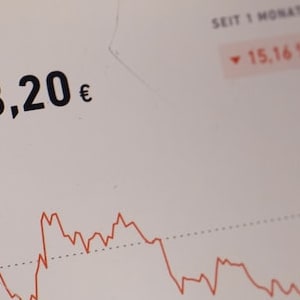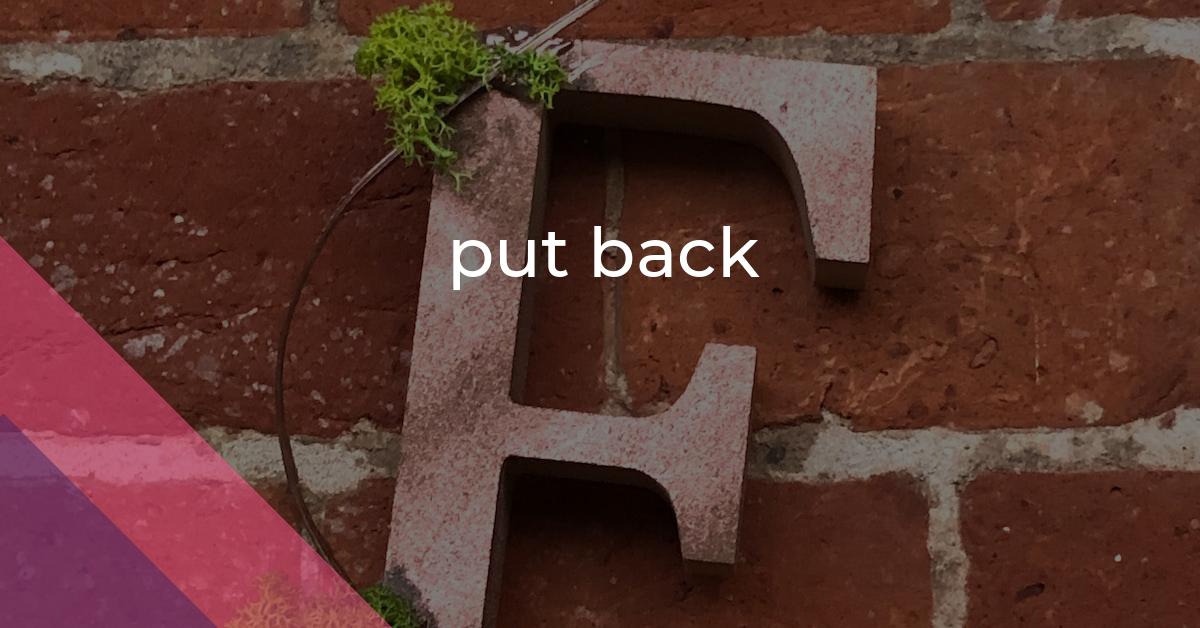put back: Idiom Meaning and Origin
What does ‘put back’ mean?
The idiom "put back" means to return something to its original place or position. It can also mean to delay or reschedule an event or activity.

Idiom Explorer
The idiom "turn back" means to go back or reverse direction. It is commonly used to express the action of returning to a previous location or reversing a decision or action.
The idiom "put forward" means to propose or suggest something for consideration or discussion. It is often used when presenting an idea, argument, or opinion in a formal setting or during a meeting.
The idiom "put down for" means to allocate or designate someone for a particular task or responsibility.
The idiom "put case" means to consider or imagine a hypothetical situation or scenario.
The idiom "put an end to" means to bring something to a conclusion or stop it completely.
The idiom "put a damper on" means to spoil or decrease the enthusiasm or excitement of a situation or event.
"Put out" is an idiom that means to feel annoyed, upset, or inconvenienced by someone or something.
The idiom "put off" means to delay or postpone something. It can refer to a physical action or a decision. It implies a sense of procrastination or avoiding a task or responsibility.
FAIL
The idiom "put back" has several meanings and uses in American English.
One common usage of this idiom is when it refers to physically returning an object to its original location. If someone takes a book from a shelf and then puts it back, they are returning the book to its original position on the shelf. This usage emphasizes the action of returning something to its proper place or restoring order.
In a more figurative sense, "put back" can also mean returning something to its previous state or condition. This can be applied to various situations, such as restoring a file on a computer to its original location or putting furniture back in its proper arrangement after it has been moved. It implies a sense of reversing a change or returning to a previous state of order.
Another meaning of "put back" is to delay or postpone an event or action. This usage is often used in the context of scheduling or organizing. For example, if a meeting is originally scheduled for Monday but is then put back to Wednesday, it means that the meeting has been postponed or rescheduled for a later date. This sense of the idiom emphasizes the act of delaying or moving something to a different point in time.
Additionally, "put back" can also be used in a more abstract sense to convey the idea of restoring or replenishing something that has been diminished or depleted. If a person consumes a certain amount of a product and then puts it back by replenishing or replacing what they used, it signifies the act of restoring the original quantity. This usage of the idiom often implies a sense of responsibility or conscientiousness in maintaining and preserving resources.
"Back in" is a related idiom that highlights a return to a previous time or place. In the context of "put back," "back in" can be used to emphasize the act of returning something to its previous location or state. For example, if someone takes a book from a shelf and then puts it back in, it emphasizes the action of returning the book to its previous position on the shelf.
"turn back" is another related idiom that conveys the idea of reversing a direction or going back to a previous point. In the context of "put back," "turn back" can be used to emphasize the act of reversing a change or returning something to its previous state. For instance, if someone rearranges furniture and then realizes it looked better the way it was before, they may choose to turn back and put the furniture back in its original arrangement.
"play back" is yet another related idiom that refers to the act of replaying or reproducing something that has been recorded. In the context of "put back," "play back" can be used to emphasize the act of restoring a file or record to its original location or playback state. For example, if a file is accidentally moved and someone wants to restore it to its original folder, they can put it back and then play back the recording or content as intended.
Overall, "put back" is a versatile idiom that can be used in both literal and figurative contexts. Whether it refers to physically returning something, reversing a change, postponing an event, or replenishing resources, this idiom conveys the idea of restoring or maintaining order. It underscores the importance of returning things to their rightful place and preserving the balance or harmony of a situation. While its meanings may vary depending on the context, "put back" ultimately highlights the notion of restoring and sustaining equilibrium.
Example usage
Examples of how the idiom "put back" can be used in a sentence:
- I need to put back the groceries before we can start cooking dinner.
- The librarian asked me to put the book back on the shelf after I finished reading it.
- Can you put back the tools in the toolbox when you're done using them?
More "Verbs" idioms



